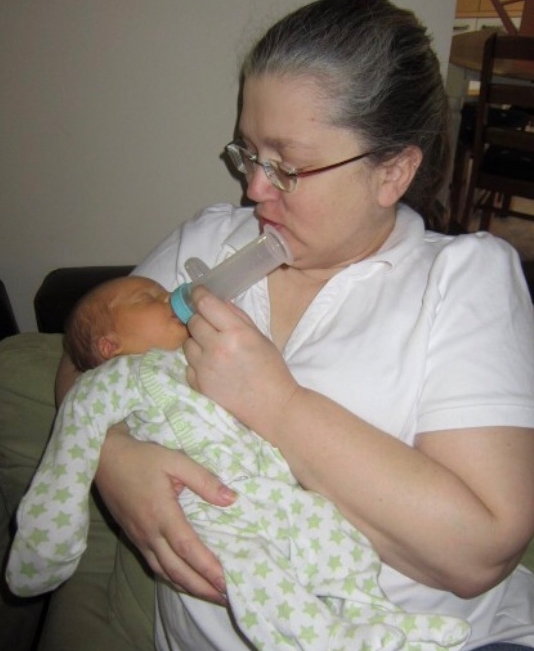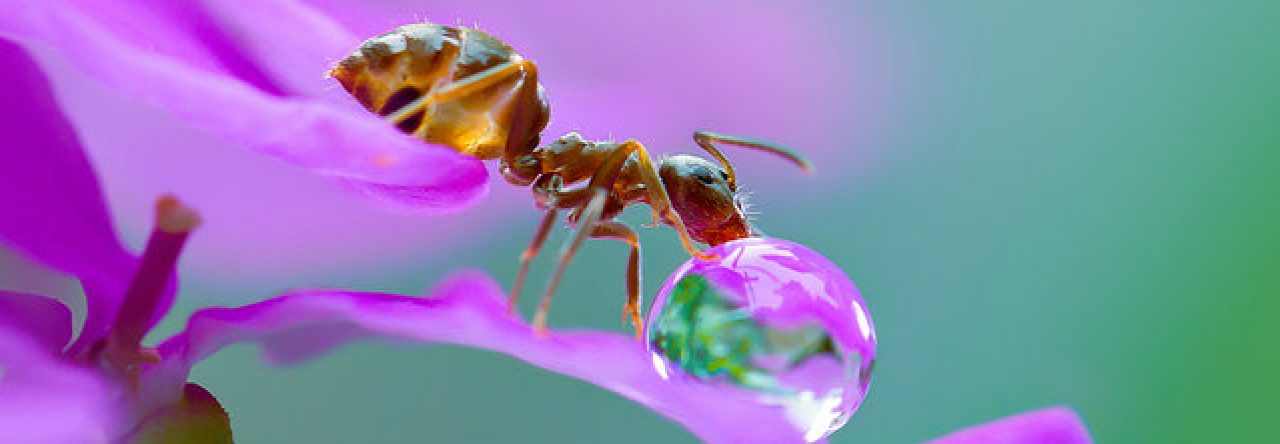Today is Rare Disease Day 2019. Normally when I post about Rare Disease Day I focus on my rare disease, but today I’d like to highlight a disease I’d never heard of before earlier this month. Actually no one had heard of it before 2016 when Okur-Chung Neurodevelopmental Disorder a rare genetic disorder was first identified. This is important to me because of this little guy, and other children like him.

Rowan’s mom has been a part of my chosen family for over 20 years, so when they found she needed to be close to a neonatal unit for the last trimester of her pregnancy we were all too happy to open our home to her, her husband, and their little Rowan on the way. This is their story told by my dear friend Penelope:
My son was diagnosed with autism 3 years ago at age 4. But from birth, we knew he was special. Now we know why.
Things became complicated in my 3rd trimester. I was hospitalized with high blood pressure and suspected pre-eclampsia many times, and was induced the day I passed the 37 week mark. My son was born with very low muscle tone, and what the doctors called “dysmorphic features”…low set ears and eyes with epicanthic folds. They immediately raised suspicions about Downs Syndrome and geneticists at the hospital ran the tests they had at the time, including for Fragile X. They tested his heart. They couldn’t find anything in their testing and we were sent on our way.
Feeding issues started immediately. Low muscle tone and reflux. We went to measures that included thickening formula with a special thickener that had to made at just the right temperature, and he was prescribed reflux medication by the pediatrician. Things began to improve at about 18 months.
Things on the social front were delayed and different. I remember crying on the way home from my son’s cousin’s 2nd birthday party. They are about exactly a year apart, so the birthday boy turned 2 and my son had just turned 1. At the party of similar aged children, it suddenly hit me how differently my son behaved. As the mother of an only child, it just hadn’t been so obvious to me before.
My son didn’t walk until 22 months, after 4 months of physical therapy. Then we focused on starting speech therapy since he spoke a total of 10 words at age 2. He rated very highly on receptive language but almost a zero on expressive language. We worked hard and he began speaking single words, then phrases, but would only speak at home with us and seemed unable to speak in other situations. Selective mutism was suggested as a diagnosis. We were told he had a slow to warm up temperament. We were given the “developmental delay” label and enrolled in preschool special education services. We did speech, play, and occupational therapies. Meanwhile, other issues my son had included slow growth, gross motor delays, social and emotional delays, toilet training delays, chronic constipation, periods of low energy, sensory processing differences, and avoidance of peers.
The diagnosis of autism at age 4, while difficult, was almost a relief. It felt like an answer. Something to explain all the issues we uncovered one by one and tried to provide the right support and treatment for. We tried a mainstream kindergarten public school experience for him, everyone seemed to encourage inclusion and bringing services to kids in the class and selectively pulling them out, but the problem with sensory processing and other issues of autism mean that some kids, like my son, will struggle with the distracting environment, large class size, and rough and tumble and strict standards of a public school. Luckily, we found a private school near our home that specializes in providing an outdoor focused arts based intimate environment for kids with autism and other conditions. My son is in a class size of 3 kids to 1 teacher, and the environment is peaceful – a nature hike every morning and classrooms with neutral walls and plain wood floors, very low distraction and individualized attention – and he has blossomed and learned in this school.
Meanwhile, as part of a business trip with my company (that makes medicines for rare diseases) I visited a geneticist with one of our sales reps. In that conversation in discussing rare diseases, the topic of autism came up and when she learned my son is autistic, she encouraged me to pursue Whole Exome Sequencing (WES), that amazing advances were being made. Since we’d seen a neurologist the month before for suspected petit mal seizures, we asked for this testing on our followup appointment. The EEG did not show seizures in the time period they tested, but the neurologist agreed to submit the WES testing, even though he was realistic with us that only a small percentage of those tested get a result.
February 8, 2019. The day I clicked onto the portal to see new test results. The genetic testing was back. The largest word on the page was POSITIVE.
My heart stopped for a second. I couldn’t swallow. I held my breath and for the first time, read “Okur-Chung Neurodevelopmental Disorder.”
Roller coaster of emotions ensued. Sadness that we hadn’t known this from birth – selfish in the way that it would have made the path and understanding easier for us as parents. Relief that we had an ANSWER. So few parents of children with autism get an answer. Excitement that we can participate in active current research. Amazement that our son will be on the cutting edge for genetic autism research. Fright that there’s so much they don’t know, and happiness that there is something that they do. A feeling that we are no longer shooting in the dark, and have some idea of what to focus on and check for and pay attention to in future.
So many things go through your mind when you find out your son has an ultra-rare genetic disorder that has only been found so far in 50 individuals worldwide. Building awareness of rare diseases is so important because 1 in 20 people will live with a rare disease at some point in their life.
Genetic testing is experiencing an advancement at rates so quick that my son’s genetic disorder wasn’t even discovered until 2016. Just a few short years ago, Whole Exome Sequencing tests were very expensive and inaccessible. As the cost decreases, more and more children, especially those with autism, are being tested. Which means more and more will be diagnosed with rare disorders and syndromes. This will be so important to so many individuals and families, providing supportive patient communities, gatherings, research, and even cures.
Happy Rare Disease Day 2019!
For more information on Okur-Chung Neurodevelopmental Disorder please visit their website: https://www.csnk2a1foundation.org

Wow, this must’ve caused such a rollercoaster of emotions. I am so glad though that you found an answer. Thanks for sharing, Wendy.
LikeLiked by 1 person
Wow! Never heard of this disease. I am so glad they are developing genetic testing for so many things. Answers make so much difference. Then they can find others, learn, and discover.
LikeLiked by 1 person
It’s amazing isn’t it?
LikeLike
I am so happy your friends have a diagnosis. There are many wonderful advancements being made but if you don’t know what the disease is, how do you deal with it? You’re left to deal with an unknown factor when all you want to do is give your loved one the best care and treatments available. It is such an emotional and stressful ride that I wouldn’t wish on anyone.
LikeLiked by 1 person
Putting a name to something makes all the difference. It gives a place to mark changes. What an emotional upheaval to go through this. My brother had something that could not be pinpointed, so it’s good to know that you have the information needed.
LikeLiked by 1 person
First, thank you for sharing your story — it is a great advocacy for more research into rare diseases, and how genetic testing is opening up whole new approaches to conditions such as autism.
Having a name, a diagnosis is so important. Now, you and your son can move forward — with a new focus on how to achieve the best results for Rowan.
Yours is a powerful and encouraging story for those who have “nameless” diseases/conditions/syndromes. Other parents will discover they are not alone in trying to provide the best care and support for children with genetic-based disorders.
I wish you and Rowan all the best in the future. .
LikeLiked by 1 person
Wow! What a roller coaster Wendy. I am so glad that a diagnosis could be given. I do wish all well xx
LikeLiked by 1 person